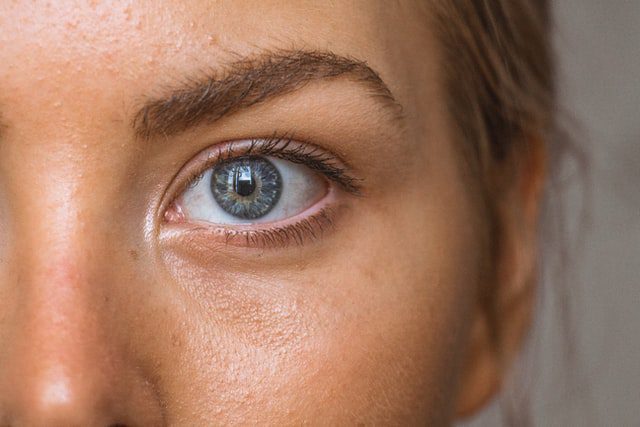Did you know that the skin is our largest organ? What’s happening on the skin can indicate a lot about our internal health. The gut-skin connection is enormous. If you have skin conditions such as acne, eczema, psoriasis, or sensitive skin, take a look at the health of your gut. If you have irregular bowel motion, bloating, food sensitivity, or abnormal stool form and consistency, it is likely that you have an imbalance of gut microbiome. This is also referred to as gut dysbiosis, and may indicate possible damage to the gut lining wall, referred to as leaky gut syndrome.
Just like we have an outer skin, we also have an inner skin called the mucous membrane which protects the body from harmful bacteria from entering our gut wall. There are various reasons for damage to the gut wall, such as being on antibiotics for a long period of time, on heavy medications, poor nutrition intake, and inflammation.
The Role Of Our Gut In Correlation To Our Skin Health
We’ve all heard that our gut is considered our second brain. This is because our gut health plays an important role within every body system. It’s not just about the gut-skin connection – the gut actually makes up about 75% of our immune system. Conditions such as hormonal imbalance, mental health, and other various digestive problems all stem from our gut health.
1. Our gut is responsible for elimination of waste and toxins. If you have irregular bowel motion or sluggish digestion, you are most likely not excreting waste properly. This may result in toxins and unwanted hormones such as estrogen circulating in your body, which can lead to conditions such as acne.
2. Our gut is responsible for crucial skin nutrient absorption. This includes such vitamins as C, A, and E, as well as zinc. Without adequate stomach acid, the body is unable to break down the foods that you digest for optimal absorption.
3. Our gut microbiomes are responsible for producing substrates that are essential for our energy production. They are also important in reducing inflammation and improving our immune function. A diet lacking a variety of fruits and vegetables, and including processed foods, sugar, white flours, and foods with inadequate fiber, creates an imbalance of healthy and unhealthy gut microbiomes. Feeding our gut with the right foods and nutrients is essential in maintaining a healthy mucous gut lining, preventing conditions such as leaky gut and dysbiosis.
7 Dietary Recommendations For Healthy Skin & Gut
1. Balance the gut microbiome with beneficial bacteria
There are variety of probiotics, but specifically these probiotics will improve skin conditions:
- Lactobacillus brevis reduces dehydrated skin.
- L. acidophillus and B.bifidum have an anti-inflammatory effect, reducing conditions such as acne.
- L. rhamnosus normalizes insulin like growth factor 1, which is one of the causes of acne. This specific strain also alleviates conditions such as eczema.
2. Repair the linings of the intestinal walls
Conditions like leaky gut, along with other symptoms of indigestion, such as gas, bloating, or food sensitivity, is due to a damaged gut wall. The skin surrounding our gut wall, the mucous membrane, helps protect the intestines from receiving harmful bacteria entering the gut wall. When the intestinal walls are permeable, harmful pathogens and bacteria enter our gut, causing conditions like those mentioned above. To repair the gut lining, supplement with:
- Collagen powder: consists of a complete source of proteins which helps heal the damaged cells and re-build tissues. It is beneficial for the gut lining, but also for the skin, hair, and nails. Collagen can be supplemented in powder form or through a quality bone broth from sustainably-sourced fish collagen or grass-fed chicken or beef.
- L-glutamine powder: a specific type of amino acid which helps to repair the intestinal walls. Supplementing with the powder form is the most common way to consume L-glutamine.
3. Consuming prebiotics and probiotic-rich foods
The constant dialogue between the gut and the skin is part of the gut-skin connection. Rather than improving gut bacteria through supplementation, it is recommended to include prebiotics and probiotic rich foods in your diet daily. Prebiotics are foods that feed the probiotics and are found in foods such as garlic, asparagus, artichokes, dandelion root tea, and apples. Probiotic-rich foods to improve gut health include fermented vegetables, such as kimchi, sauerkraut, and coconut yoghurt.
4. Implement an anti-inflammatory diet
Issues with skin, such as eczema, psoriasis, or acne, or issues with digestion may indicate that an inflammation is occurring within the body specifically within the gut walls.
- Focus on wholefoods: Opt for brown rice over white rice, reducing white flours and sugars, as these are highly inflammatory. Instead, choose complex carbs with fiber intact, such as sweet potatoes, pumpkins, buckwheat flour and oats.
- Omega-3 fatty acids: They are anti-inflammatory and will help add moisture to the gut lining and skin. Omega-3s are found in sardines, mackerel, and wild salmon. Vegan sources include chia seeds, walnuts, flaxseeds, spirulina, and seaweed oil, which can be supplemented.
- Quality sources of protein: Protein is essential for repairing the gut wall and re-building tissues for healthy skin, hair, and nails. Opt for organic chicken or sustainably sourced fish. If vegetarian, protein sources include a variety of beans, such as chickpeas and black beans, lentils, tofu, and tempeh.
- Antioxidant rich foods: Antioxidants such as glutathione and polyphenol are found in green tea, berries, and avocados. These help to fight free radicals, preventing signs of aging.
5. Identity food sensitivity
Keeping a food journal is the best way to identify foods negatively impacting the gut-skin connection. Triggers cause inflammation in the body and skin. Some common food triggers are gluten, wheat, dairy, soy, eggs, and preservatives that are found in various store-bought sauces and refined flours such as breads. Keep a food journal for at least two weeks to help identify trigger foods.
6. Foods rich in skin-loving nutrients
Vitamins C, A, and E, and also zinc are found in a variety of fruits, vegetables, nuts, and seeds.
7. Hydration in the form of water and oils
At least 2 litres of water per day is required unless you live an active lifestyle and sweat a lot, then aim for at least 3 liters. Tea can be substituted for water. Opt for skin-loving herbal blends, such as rosehip, hibiscus, or nettle teas. Oils found in good fats such as those in avocados, olive oil, nuts, and seeds are essential in giving moisture to our skin and the gut wall.
5 Herbal Supports To Improve Skin Conditions
1. Gotu kola / Centella asiatica
These give moisture to the skin and improve collagen production. Both oral and topical use of gotu kola has been shown to improve rapid skin growth and recovery.
2. Herbs that support liver and gut function
This includes herbals such as bitters of burdock root & dandelion root. In addition to the gut, the liver is another organ system responsible for the elimination of toxins and digestion of fats. Make a mixture of dandelion and burdock root tea, and drink after meals for optimal digestion and to reduce bloating
3. Lymphatic herbs
The role of our lymphatic system is very important when it comes to skin health. All the fluids and waste products that enter the lymphs through our skin are removed by the lymphatic system. Most people suffering with skin issues are likely to have a sluggish lymphatic system. Make a mixture of teas with cleavers, calendula, and dandelion root to support the elimination of waste.
4. Stinging nettle
We cannot forget about stinging nettle when considering the gut-skin connection. This herb is highly dense in skin-loving nutrients such as vitamins A, K, and folate, as well as calcium and potassium. It contains high amounts of phytochemicals, such as b-carotene, zeaxanthin, and luteoxanthin, which are responsible for fighting aging. Quercetin in nettle is responsible for reducing allergy symptoms, such as asthma stemming from underlying gut health, and/or itchy, inflamed skin conditions. Make an infusion with nettle tea to get the most benefits.
5. Schisandra chinesis
Considered an adaptogen, this is a five-flavoured berry that plays a crucial role in the gut-skin connection. It benefits the skin due to its effect in liver function detoxification. Schisandra also improves our mood and energy levels.
5 Lifestyle Recommendations For Healthy Gut & Skin
1. Reduce exposure to environmental toxins
These can be found in foods you consume that contain injections of antibiotics such as in meat. Avoid fruits and vegetables that are sprayed with harmful chemicals. Other things to be aware of are the environmental toxins found in beauty products, cleaning products, and household detergents. These environmental toxins can have a significant overall impact on our gut health and the health of our skin.
2. Dry brushing
This type of self-care involves using a wooden bristle brush and brushing the skin before taking a shower. Start from the feet and move in an upward motion on your legs and thighs. In other areas of the body, use a circular motion to help promote lymphatic detoxification.
3. Exercise
Sweating is often overlooked when it comes to the gut-skin connection. However, it promotes the detoxification of the lymphs and improves our digestion. This thereby improves our skin health
4. Stress management
Aim for 8 hours of sleep each night. Lack of sleep can make us more apt to reach for processed foods, making us prone to poor digestion and lower energy levels. The skin also repairs itself at night. If you are struggling with sleep, it is advised to supplement with magnesium glycinate one hour before bedtime.
5. Chew your food well
Chew at least 30 times per mouthful. Our digestion starts in the mouth where enzymes such as amylase are produced, helping break down starches into simple carbohydrates for easier digestion and optimal nutrient absorption.
Our skin is a reflection of our internal health, specifically the health of our gut! Following these recommended dietary and lifestyle recommendations will not only improve the health of our gut, but will also improve our skin’s condition, our immune system, our mood and energy levels, and our liver function. Remember that when the body heals, it doesn’t heal just one body system. It heals all the other body systems simultaneously. This is especially true when we treat the body in a holistic way.





